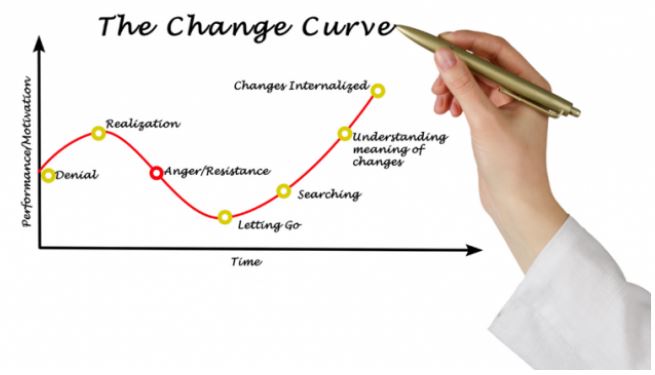Change Management Within The Retail Banking Sector (2011)
Change Management – This dissertation addresses the people issues around the subject of technological change within the UK retail-banking sector. The objective was to study technology within the retail-banking sector, highlighting its advantages, but primarily addressing the major problems in the sector that result from technological change. In order to achieve this it became necessary to identify employee attitudes towards technological change, and furthermore to focus on how the retail banks are currently dealing with the employee attitudes.
The research conducted revealed that retail banks have been subject to rapid technological change, which has presented the banks with a wide range of opportunities, and also the challenge to adapt. Technology provides benefits to the retail banks in terms of the provision of more detailed and precise information, which enables, banks to effectively compete within an increasingly sophisticated operating environment. The findings also indicated that the implementation of technology has consequences for task arrangement, structures and people.
Aim Of The Study: (1) Evaluate technological developments in UK retail banking sector (2) Identify the impact of application of technology and the employee (3) Focusing upon the factors that influence employee behaviour during the change process, and (4) Use models, strategies and techniques that management adopt to help minimize resistance.
- 12,000 words – 78 pages in length
- Outstanding use of literature
- Excellent use and application of finance models
- Includes questionnaire
- Ideal for finance and business management students
1. Introduction
Research Methodology
The Advantage and Disadvantages of Questionnaires
Data Gathering Context
2. Technical Developments in Retail Banking
Technological Developments
Supplementary
Relationship Orientated Banking Structure
Summary
3. Changes and Technological Implications in Banking
Advantages of Technology
Service Quality
Increased Flexibility
Effect on Organisation
Organisation and Technological Interrelationship
Evolution from the Traditional Bank to the Modern Bank
Internet and Telephone Banking
Effect of Technology on Employee
Summary
4. Attitudes Towards Change
Employee Attitudes Towards Technological Change
Employee attitudes as to whether Technology is more beneficial to the Organisation or to the Employee
Employee Attitude Towards Technological Change
Employee Attitudes Towards Organisational Change
Description of Change
The effect of Technological Change on Employee Attitudes
Impact of Change
Resistance to Change
Self-Interest
Lack of Trust and Misunderstanding
Conflicting Assessment
Low Acceptance of Change
Summary
5. Management of Change
Deal with Technological Change
Adhering to Force Field Analysis
Systems Approach to Change
Behaviour Modification
Six Strategies: Addressing Resistance to Change
Approaches used to introduce Technology within the Branches
Education and Communication
Involvement and Participation
Support and Facilitation
Negotiation and Agreement
Manipulation and Cooptation/Explicit and Implicit Coercion
Summary
6. Conclusions and Recommendations
Conclusions
Recommendations
References
Bibliography

